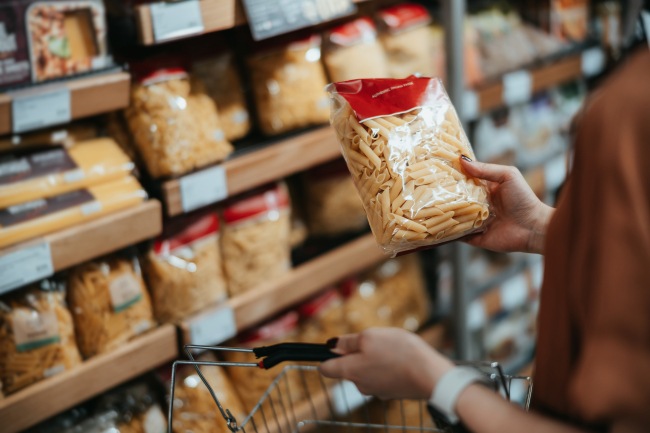Türkiye updates food labeling guidelines to prevent consumer misleading
 A person shopping for canned food at a grocery store, examining labels and checking expiration dates to ensure quality and safety. (TRT Photo)
A person shopping for canned food at a grocery store, examining labels and checking expiration dates to ensure quality and safety. (TRT Photo)
The Ministry of Agriculture and Forestry in Türkiye has updated its “Turkish Food Codex Labeling and Consumer Information Regulation Guide,” tightening rules to prevent deceptive food packaging and misleading claims.
Key changes focus on ensuring that food labels, terms and visuals
The updated guidelines will come into full effect by Dec. 31, 2026, requiring food businesses to comply with stricter labeling standards.
Key changes focus on ensuring that food labels, terms, and visuals do not misrepresent the product’s nature, composition or origin. For example:
- Margarine labels can no longer feature visuals like milk churns or butter tubs that evoke butter.
- Non-olive oils cannot use visuals or phrases like “olive oil-like” on labels.
- Products containing only artificial flavors must specify the term “flavored,” such as “cheese-flavored” for cakes using cheese aroma.

Tighter controls on food labeling terms
Several common phrases have been banned to prevent confusion:
- Terms like “homemade” are prohibited for industrial-scale food products.
- Labels for dairy products cannot include words like “traditional,” “farm-made,” or “100%.”
- Coffee blends containing non-coffee ingredients cannot claim to be “100% coffee.”
Vegetarian, vegan labeling standards introduced
The guide also sets new standards for labeling vegetarian and vegan products. Labels and visuals must not evoke animal-based products, although terms like “vegan burger” or “vegetarian sausage” are permitted.
Food service establishments must indicate vegetarian and vegan options on menus, brochures, or digital displays with statements like “suitable for vegetarians/vegans.”

Changes for common food items
The updated guide addresses several specific products:
- Ice-based desserts cannot feature visuals of dairy animals unless they contain milk.
- “Peanut baklava” must specify the type of nut used, instead of using generic terms like “pistachio baklava.”
- Meals with yogurt must be labeled as “yogurt-based,” with clarity on other fermented dairy products used.
Implementation timeline, compliance
Food businesses have until Dec. 31, 2026, to align their products with the updated rules. After this date, non-compliant items will be removed from the market.



